I’m a Scientist is like school science lessons meet the X Factor! School students choose which scientist gets a prize of $1000 to communicate their work.
Scientists and students talk on this website. They both break down barriers, have fun and learn. But only the students get to vote.
This zone is the Disease Zone. It has scientists studying the causes and processes of illness . Who gets the prize? YOU decide!


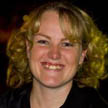
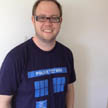
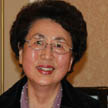
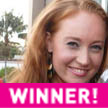
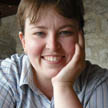


Dear Bobstanley; Everybody has dreams he/she wants to be when she/he grow older. Some say they don’t have any dreams but it only means they are not decided yet. The dreams may change as they experience various things.
Sport scientist or cyclist sounds interesting but just consider them as possbilities.
Wait and see what you really want to be as you get older. My work was and is not related to any of your interest. You may want to wait until others to answer.
0
My research has many similarities with sports science, because I study muscle, and how we can stop it from breaking down and encourage it to grow. A lot of the same genes and proteins are involved in cachexia as in exercised muscle, because in exercise the muscles get stressed and start to break down, but then if you help them recover properly, they get stronger. We often look to sports science for ideas on how to help patients with cachexia.
At our cachexia clinic, we work with a doctor, a nutritionist, and a physiotherapist. The physiotherapist give patients exercises to help their muscles get stronger, the nutritionist makes sure they are getting all of the nutrients they need to build muscle, and the doctor can prescribe drugs that help muscle grow, increase appetite so they can eat more, etc. Now, while drugs in sport can be a bit of a no-no, especially if they enhance performance, all these things could be applied in sport as well as cachexia! I’d actually like to spend some time working with athletes in the future, because the areas are so similar.
0
I would say it’s an excellent career choice to become a sport scientist! You will not only be able to find work with athletes (including NRL, AFL clubs), but may also find work related to working with people who are overweight or have a disability! Getting an income being a professional cyclist may not be that easy….
I myself work on how to increase body metabolism to loose weight, but my colleague Christian (PhD student) is looking at the link between vitamin D (something we get from sunlight and certain foods) and muscle growth!
1
I actually did some exercise and sports science subjects as part of my degree Bobstanley! At the moment I don’t work in sportscience, but with my degree (medical laboratory science) the option is there to work with sprts scientist doing research. Or another option is to work in a lab that tests for drugs of abuse (I do this testing for mine sites). Medical laboratory scientists have a good understading of how the human body works, and what can go wrong so I think it would be a great area to start if you were interested in a career in sports science of physiology/physiotherapy!
0